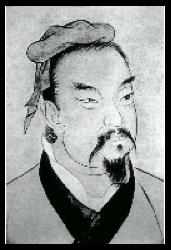Reports from the Knowledge Labs about our recent findings, research topics, and interviews with lifestyle leaders who are creating their own futures.
|
|
| |
How to stimulate your own powers of foresight. Consider the following thought provokers. Ask yourself, in these categories what are the brand new trends and forces? Which are the ones growing in importance? Which current forces are loosing their steam? Which have peaked or are reversing themselves? Which are the "wildcards" about to disrupt us in the future? POLITICAL AND TECHNICAL thought for food: Electronics, Materials, Energy, Fossil, Nuclear, Alternative, Other, Manufacturing (techniques), Agriculture, Machinery and Equipment, Distribution, Transportation (Urban, Mass, Personal, Surface, Sea, Subsurface, Space), Communication (Printed, Spoken, Interactive, Media), Computers (Information, Knowledge, Storage & Retrieval, Design, Network Resources), Post-Cold War, Third World, Conflict (Local, Regional, Global), Arms Limitation, Undeclared Wars, Terrorism, Nuclear Proliferation, Weapons of Mass Destruction, Governments (More/Less Power and Larger or Smaller Scale), Taxes, Isms: Nationalism, Regionalism, Protectionism, Populism, Cartels, Multinational Corporations, Balance of Trade, Third Party Payments, Regulations (OSHA, etc.) Environmental Impact, U.S. Prestige Abroad. SOCIAL AND ECONOMIC Food for thought:
Labor Movements, Unemployment / Employment Cycles, Recession, Employment Patterns, Work Hours / Schedules, Fringe Benefits, Management Approaches, Accounting Policies, Productivity, Energy Costs, Balance of Payments, Inflation, Taxes, Rates of Real Growth, Distribution of Wealth, Capital Availability and Costs, Reliability of Forecasts, Raw Materials, Availability and Costs, Global versus National Economy, Market versus Planned Economies, Generations: Y, X, Boomers, Elderly, Urban vs. Rural Lifestyles, Affluent vs. Poor, Neighborhoods and Communities, Planned or Organic Growth.
Got Knowledge?
|
|
| |
|
|
|
|
The Journal of 2020 Foresight
|
|
| |
|
Tuesday, June 04, 2002

Yogi Berra and Sun Tzu at the Crossroads
Chapter One: Basecamp
By Steve Howard, CKO
The Knowledge Labs
Table of Contents
Chapter One: Basecamp
Chapter Two: The Ridge
Chapter Three: The Outpost
Chapter Four: The Tribal Territories
“When you come to a fork in the road, take it.”
Yogi Berra
Pounding the pavement?
Will you make the same mistakes over and over again? Or as you face a crossroad, will you blaze your own trail, as the creative minority does?
In my home office sits a placque my sister made for me as a reminder “Better is one’s own path … though imperfect … than the path of another well made.”
Decisions and plans, or the lack thereof, made today will influence your next 5 years. Choosing to take the sidewalk, or to blaze a new trail isn't easy. How do you anticipate the unexpected? How do you seize the ever-shifting threats and opportunities you encounter along the way?
Some of the best advice about the future, strategy and beating my opponents I've used has been around for over 2400 years. HENRY CHU, LA Times on 5/31/02 in "Ancient Secrets to Success" listed the business schools, generals, campaign managers and even internet discussions invoking Sun Tzu as a way of trying to understand the September 11 terrorist attacks.
One of the ancient wisdoms about beating the competition at its own game -- "Know your enemy and know yourself, and in a hundred battles you will never face defeat."
Here's how Alex, one of the creative minority applied that wisdom.
"After running my own professional speaking and internet consulting biz since July 2000, I decided to return to the workforce in Sept 2001. I had just begun the search when 9/11 happened which really slowed down the market.
Then the holidays kicked in and I got little response. Things were just picking up in January then Enron broke.
It really didn't turn for me until the end of March when I noticed that the market was improving a bit and I was finding more listings. I also really ramped up my efforts after I returned from a March Madness Vegas Trip.
What I did what write out a job description for a personal job search assistant, outlining exactly what I would want done on a daily basis. Then I mentally "hired myself" to do that job.
It included sending out at least 10 resumes every day, conducting follow up calls, making networking calls and attending networking events, writing thank you letters, scheduling interviews, etc. I created a simple database in Filemaker and really tracked my performance.
The first week I got back, I sent out 50 resumes. Mostly from Monster.com and FlipDog, some networking as well. I opened up my criteria to positions I really didn't think were ideal and sure enough, I got a couple of interviews.
Whenever I got a nibble, I did everything I could to get the position. Researched the company, the industry, tailored my accomplishments, etc.
The position I accepted is the Website Marketing Program Manager. I had 3 interviews with the company, meeting about 8 people all together. Even had a videoconference interview with someone out of state. The only downside is the commute, but I can deal with a drive or a relocation." Have you used a similar creative technique?
Got Knowledge?
Copyright ©2002 - 2006 Aarnaes Howard Associates. All rights reserved worldwide.
6:46 AM
|
|
| |
|
|
|